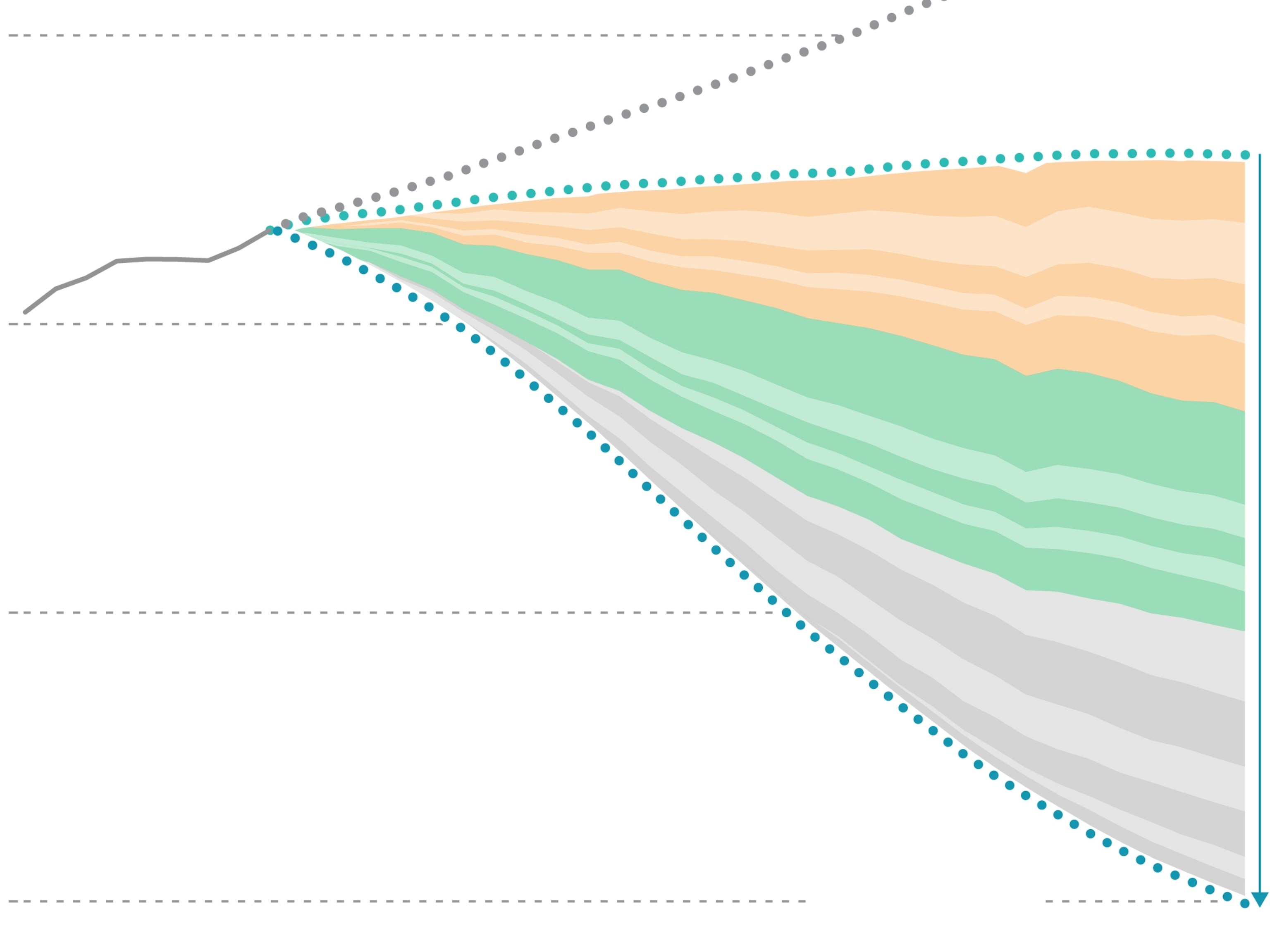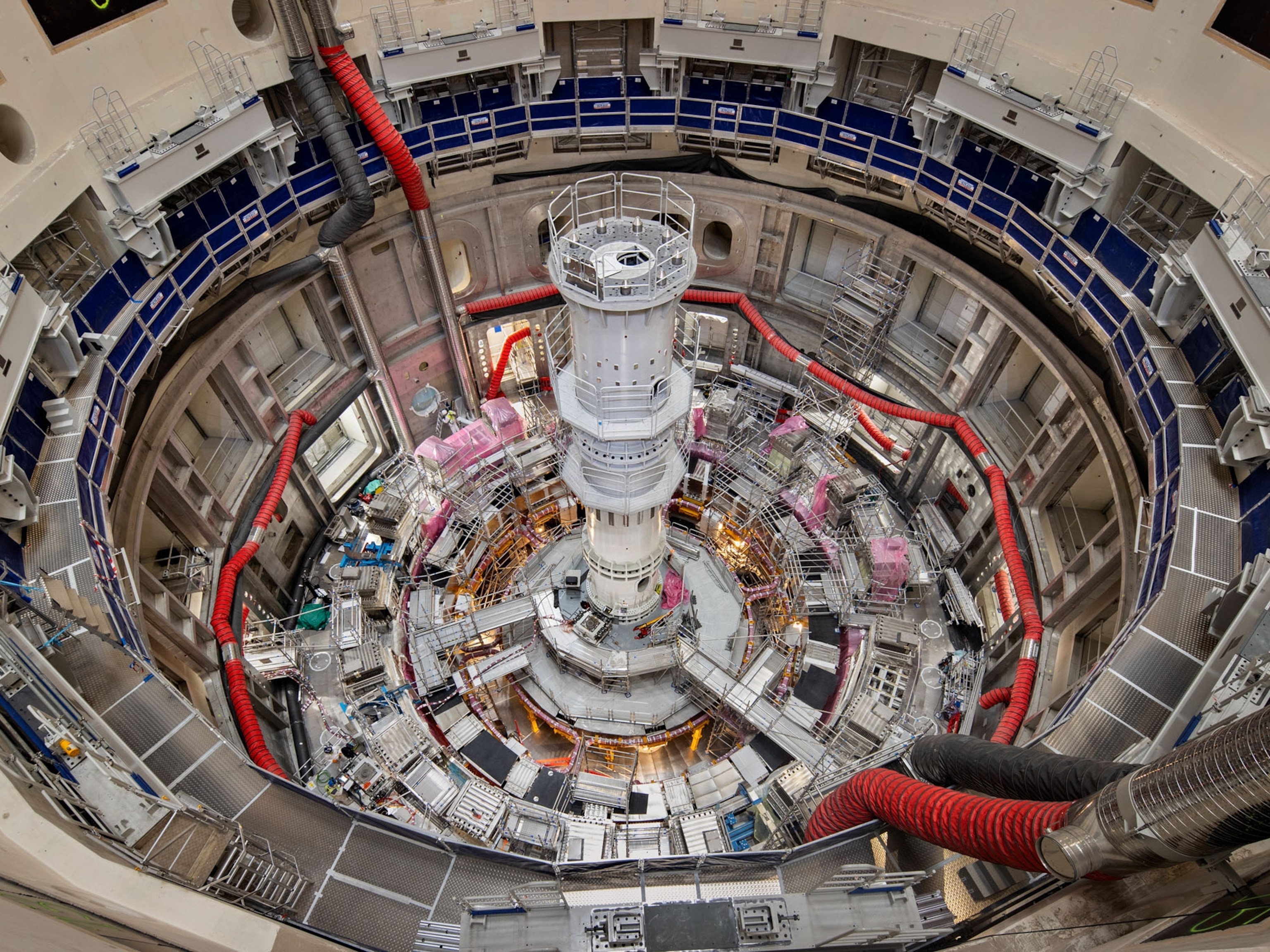Voter's Guide: Compare Candidates on Climate and Energy
Here’s what you need to know about how the major presidential candidates stack up on climate, environment, renewable energy, and fossil fuels.
From “moral issue” (Bernie Sanders) to “hoax” (Donald Trump), presidential candidates’ views on climate change are diverse, and they split largely along party lines.
Some comments have been colorful. GOP candidate Marco Rubio said climate action needs to be global, because “America is not a planet.” Fellow Republican Sen. Ted Cruz called climate change a “pseudo-scientific theory.” Democrat Hillary Clinton said she “crashed” a meeting with the Chinese to broker a climate deal.
As Iowans go to the polls Monday for the first statewide vote of the 2016 presidential campaign, we offer this guide to key topics that have received little attention in the official debates despite last month's historic UN climate accord.
What has been promised is rather dramatic. Cruz, a conservative Texan, says he’ll eliminate the Department of Energy and several programs at the Environmental Protection Agency. Trump, a New York businessman, says he’ll slash funding for the EPA, calling it “the laughing stock of the world.”
The top-tier GOP candidates generally back solar and wind energy, which has broad public support, but oppose the public policies—such as tax credits and EPA rules—that could ensure or accelerate its growth. All favor maintaining or expanding U.S. production of oil and natural gas.
The Democrats tell a different story. Former Maryland Gov. Martin O’Malley wants to create a “100 percent clean electric grid by 2050.” Former Secretary of State and Sen. Clinton says she’ll increase solar capacity 700 percent by 2020 and boost the amount of energy from renewables from 13 percent to 33 percent by 2027..
This issue has become more polarized.Gene Karpinski
On climate change, Vermont’s Sen. Bernie Sanders has been perhaps the most outspoken. “The debate is over. Climate change is real. It is already causing major problems,” he says. The GOP is “so owned by the fossil fuel industry and their campaign contributions," he adds, "that they don’t even have the courage, the decency to listen to the scientists.”
Indeed, on climate change, the views of the two parties appear worlds apart.
“This issue has become more polarized,” says Gene Karpinski, president of the League of Conservation Voters, an environmental advocacy group that has endorsed Clinton as its presidential choice. “On the Democratic side, the candidates are talking more about this issue than ever before. The Republicans are in various stages of denial.”
Cruz objects to the very term “denier,” saying it proves “climate change is not science—it’s religion.” The son of two mathematicians, he told a TV interviewer that any good scientist is a skeptic, adding: “Yet the language of the global warming alarmists, ‘denier,’ is the language of religion. It’s heretic. You are a blasphemer.”
Do voters care? Depends. An overwhelming 81 percent of millennials —the under-35 generation—agree the U.S. should transition to clean energy by 2030 although only 60 percent say they’re likely to vote in November, according to a poll this month by Ipsos, on behalf of Rock the Vote and USA TODAY.
Another recent poll found that 15 percent of Democrats consider the environment the most important issue, ranking it third among seven issues after the economy and health care. Yet only 2 percent of GOP voters agreed, putting the issue in last place for them.
Nearly two of every five, or 38 percent, of U.S. adults said this month that “dealing with global climate change” needs to be a top priority—up from 28 percent three years ago, but the issue still ranked 16th among 18 queried, according to the Pew Research Center. Nearly half said “protecting the environment” should be a priority, putting that issue in the 13th spot.
While climate change may be of rising concern to Democratic voters, it’s yet to become a top-tier issue for the general U.S. population. What is? As in prior elections, the predominant topic remains what Democratic campaign strategist James Carville described in 1992: “The economy, stupid.”
Additional reporting by Ryan Williams and Aileen Clarke
The story is part of a special series that explores energy issues. For more, visit The Great Energy Challenge.
On Twitter: Follow Wendy Koch and get more environment and energy coverage at NatGeoEnergy.





